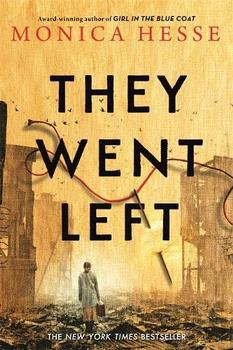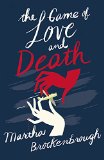Summary | Excerpt | Reviews | Beyond the book | Read-Alikes | Genres & Themes | Author Bio

From the book jacket: Moshe Wisniak grew up malnourished and
fatherless outside Warsaw at a time when Jews and Poles lived in poverty and
violence. When Moshe's brothers emigrate to Paris in the 1930s, it means a new
life for the whole family, who follow soon after. A decent job, a lovely young
wife, and a hobby as an amateur boxer vastly improve Moshe’s prospects until the
day he is rounded up and sent to Auschwitz. There he is tortured, starved, and
most shockingly, asked to entertain Nazi soldiers by boxing against dying
prisoners.
Moshe wants to survive without killing his comrades, but how? Based on the
memoir of his family friend, Jean-Jacques Greif has taken the facts and turned
them into a gripping novel about life and death in Auschwitz.
Comment: Jean-Jacques Greif's first novel to be translated into
English is a powerful tale of survival of the fittest in one of the most
merciless environments ever dreamed up by humanity. It is based on the
life of Maurice Garbarz, a Polish-Jew who was a friend of Greif's father. Greif's father, also a Polish-Jew and camp survivor, died in
1999 at the age of 94 but Maurice was still alive as of May 2006.
Moshe/Maurice tells of a life where guards kill without a thought, merely
for the sport of it, squashing prisoners as if they are no better than flies; beating
them without mercy just for the fun of it, and pitting them against
each other as if they're fighting dogs, while meanwhile working them, quite
literally, to death.
Earlier this year,
The Boy In The Stripped Pajamas (a story about a German boy who
befriends a boy within Auschwitz) got a lot of press attention.
The Fighter is an entirely different type of book - it's a tough,
raw, graphic read that has more in common with Primo Levi and Elie Wiesel than
the somewhat disingenuous
The Boy In The Stripped Pajamas (click
here for BookBrowse's review of The Boy, which includes background
about Auschwitz).
One reviewer takes offence to some of the
gruesome details asking "must we know what it was really like to sift through
the piles of corpses, and see eyes that have jumped out of their sockets?"
In response to her, I would answer, yes, we must, because to whitewash
reality is to hide from it, and we owe it to those who have died, or are dying
in similar atrocities today, to at least face up to the realities, even if only
in print.
Greif says that he does not write for a particular age group, but The Fighter has proved popular
in France (where it was first released) as a book to accompany the study of
World War II during the first year of High School. Apparently, it hits the
mark with young people as in 2000, shortly after it was released in France, it
won the five main literary prizes given by students that year!
Many of Greif's books are set in times of war, but he says they are not about war per se but about people
facing moral dilemmas - which tend to become more cut and dried during times of
war.
"If you want to know about the French Revolution, there are many books of history that give you an account. If you want to know how people behaved in these best and worst of times, you can read A Tale of two Cities. The author’s talent is such that you’ll become one of the characters and go through the Revolution yourself. That’s the power of the novel. So what is added in my book, I hope, is that you’ll go to Auschwitz yourself—as opposed to what happens if you read the definitive book about the Holocaust, Hilberg’s The Destruction of the European Jews."
About Jean-Jacques Greif
French journalist and writer, Jean-Jacques Greif was born in Paris in 1944,
six months after his father was deported to a concentration camp. His
parents were both from Eastern Galicia, a province which was then part of Poland
but is now located in the Ukraine. His father emigrated in 1925, his
mother in 1938.
As a journalist he has worked for more than thirty years for Marie Claire
magazine. He first published work was
a documentary book for children about computers (1986); for much of the
following years he wrote how-to books about the Macintosh computer and its
software (at least 20 in French, and 7 in English - he is fluent in both and
translated The Fighter himself). His first novel for teens was published in
1996; about 16 more books, for both teens and adults, have been published since.
His subjects include Beethoven; Mozart; Einstein; Joan of Arc;
Marilyn Monroe; and various unknown heroes, such as his father and mother, both
former
members of the French Résistance. His mother "vanished" for six months
into a secret Gestapo
jail. His father was denounced and spent about a year in Auschwitz.
"When I was two or three, I hid under the kitchen table while my father and his friend Pierrot compared Auschwitz and Buchenwald. The last time I saw both of them together, Pierrot in his eighties and my father past ninety, they still compared Auschwitz and Buchenwald. Before I had heard about Snow White and Cinderella, I knew that mothers promised their babies a good shower after three days in the cattle car and that poisoned gas rained down instead of water." - Jean-Jacques Greif.
![]() This review
first ran in the December 6, 2006
issue of BookBrowse Recommends.
This review
first ran in the December 6, 2006
issue of BookBrowse Recommends.

If you liked The Fighter, try these:

by Monica Hesse
Published 2021
A tour de force historical mystery from Monica Hesse, the bestselling and award-winning author of Girl in the Blue Coat.

by Martha Brockenbrough
Published 2015
Not since The Book Thief has the character of Death played such an original and affecting part in a book for young people.
Your guide toexceptional books
BookBrowse seeks out and recommends the best in contemporary fiction and nonfiction—books that not only engage and entertain but also deepen our understanding of ourselves and the world around us.